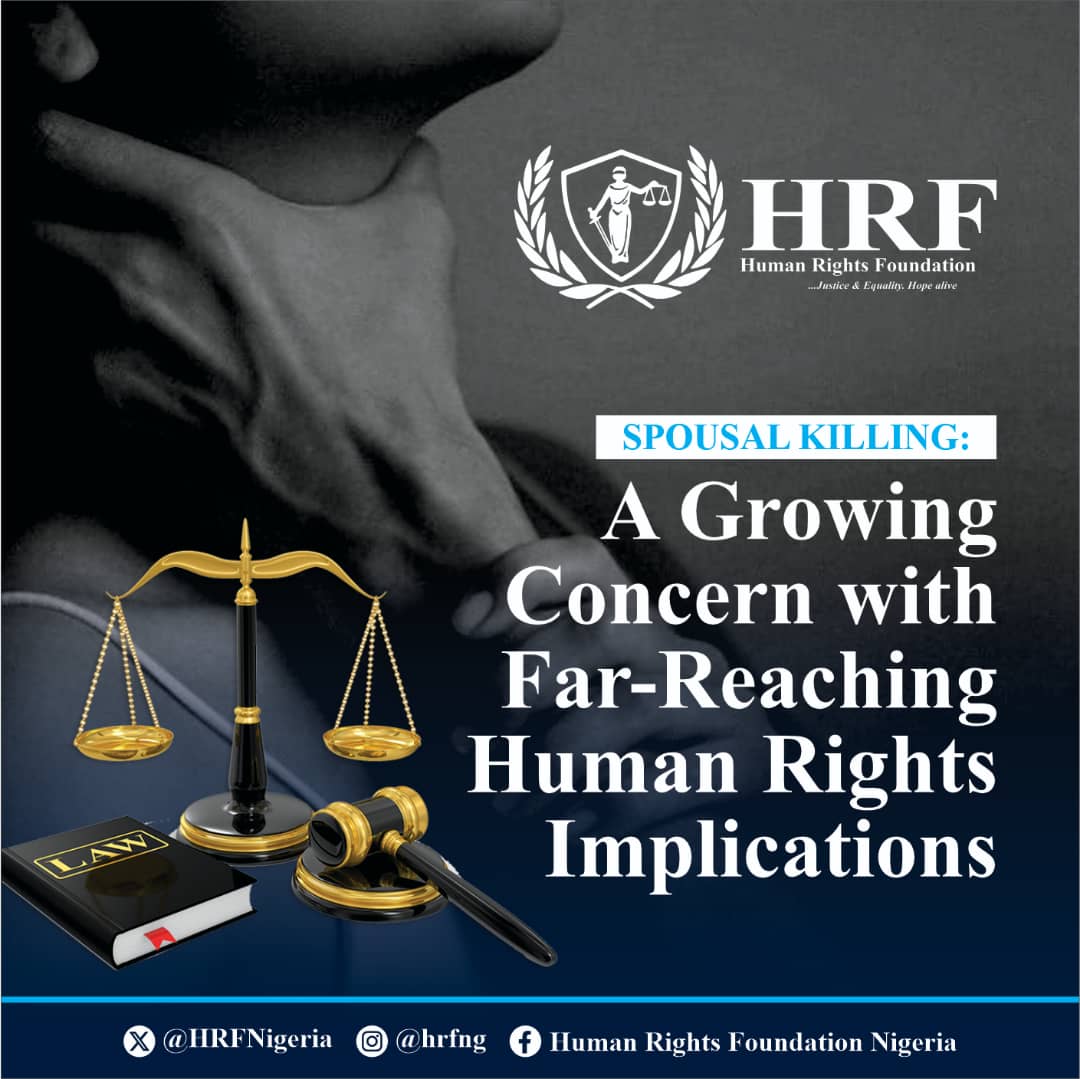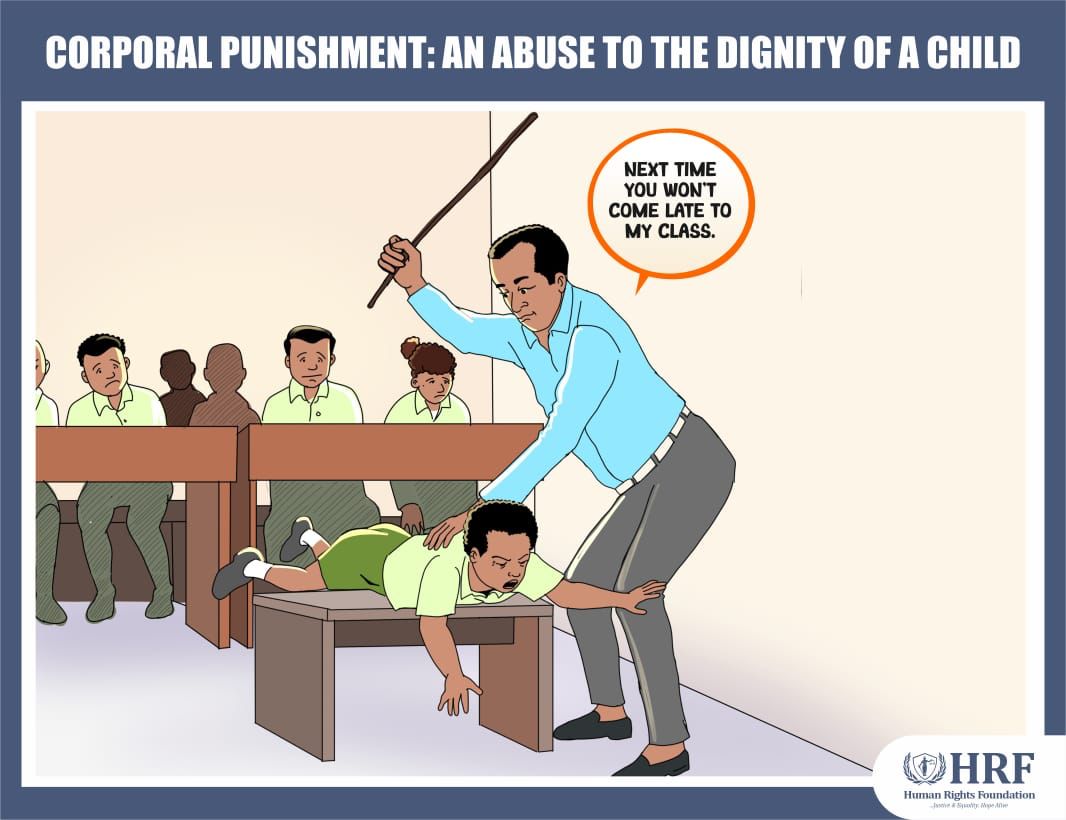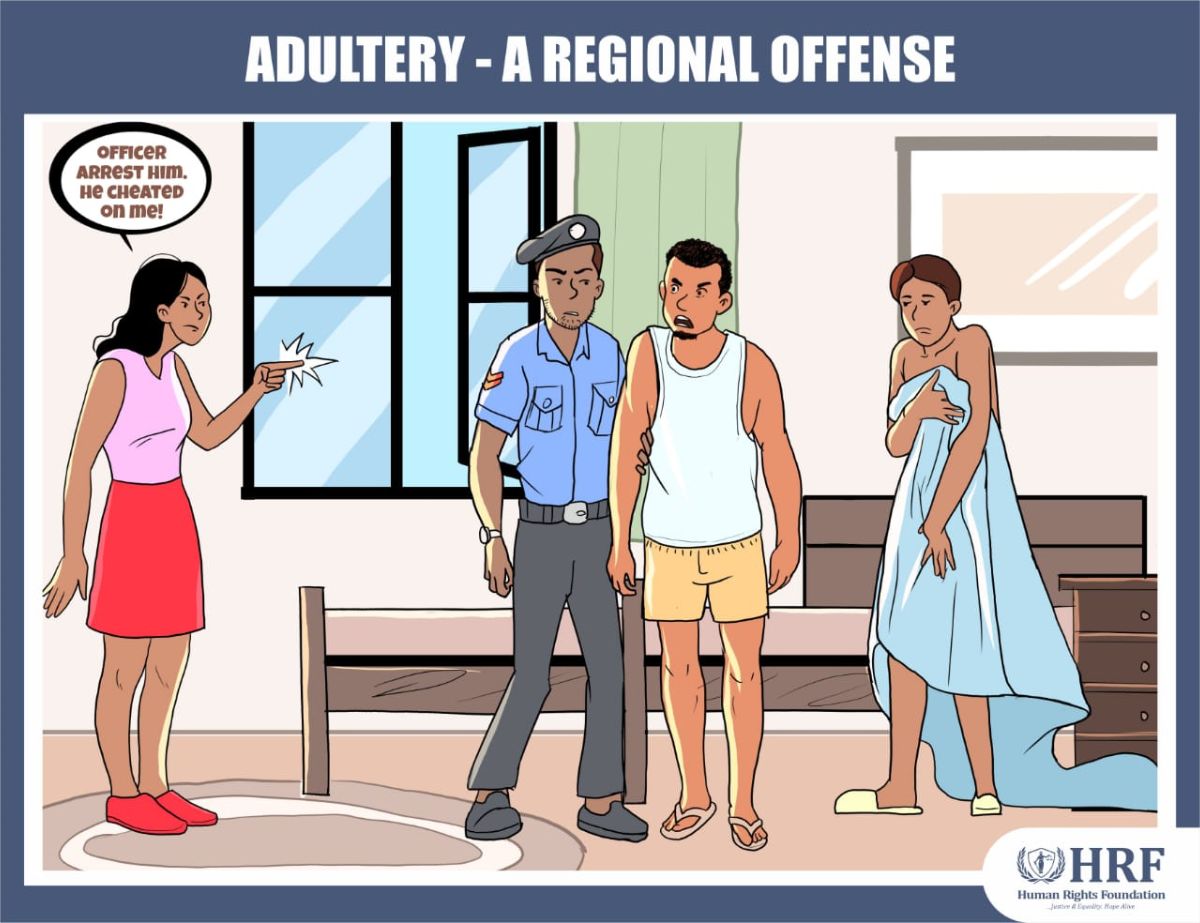
Lately, spousal killings have emerged as an alarming trend in Nigeria, garnering attention as not only a criminal act but also a violation of the fundamental human right to life, dignity, and safety. While domestic violence has long been acknowledged as a critical issue, spousal killings represent the extreme and fatal end of an abusive relationship, drawing attention to systemic failures and the need for comprehensive intervention.
These heinous acts, in which one partner takes the life of the other, are often fueled by a combination of the following;
1. Domestic Violence and Abuse: A key factor driving spousal killings is the presence of ongoing domestic violence. Physical, emotional, and psychological abuse often escalate over time, with victims being trapped in an environment of fear, control, and manipulation. Abusers may feel a sense of ownership or entitlement over their partner, leading them to commit extreme acts when they perceive a threat to their power.
2. Cultural and Societal Norms: In some cultures, patriarchal values that prioritize male dominance in relationships can contribute to a toxic dynamic where violence is seen as a way of maintaining control. These societal expectations often normalize abusive behavior, which may eventually escalate into murder.
3. Mental Health Issues: Certain mental health disorders, such as personality disorders or extreme jealousy, can contribute to spousal killings. In some cases, perpetrators may struggle with delusions or an inability to cope with perceived rejection or betrayal, leading to violent outcomes.
4. Economic Stress: Financial instability and job-related stress are also contributing factors. When one partner feels emasculated or burdened by financial struggles, it may exacerbate feelings of frustration or inadequacy, pushing them toward violent outbursts.
Human Rights Implications of Spousal Killing
Spousal killings are not just crimes against the victim; they are gross violations of human rights. The Universal Declaration of Human Rights enshrines the right to life, security, and protection from violence. The killing of a spouse not only denies the victim their most fundamental right—the right to life—but it also represents a failure of the state and society to safeguard individual safety and dignity.
Moreover, these killings often leave lasting trauma on children and families, further compounding the human rights violations. The long-term psychological and emotional impacts on surviving family members, especially children who witness or are affected by such violence, are profound and far-reaching.
Solutions to Combat Spousal Killings
1. Stronger Legal Frameworks: Governments need to strengthen laws against domestic violence, ensuring stricter punishments for offenders. Legal reforms must prioritize the swift prosecution of spousal killings and provide clear deterrents against such crimes.
2. Enhanced Support Systems for Victims: Creating safe spaces for victims of domestic violence is crucial. Shelters, hotlines, and counseling services should be more accessible, with adequate funding and trained staff to support those at risk. Early intervention programs, including therapy and legal advice, can help victims escape abusive relationships before they escalate to violence.
3. Public Awareness Campaigns: Raising awareness about the signs of domestic violence and the availability of support services is vital. Public education campaigns can challenge harmful societal norms and reduce the stigma associated with seeking help.
4. Mental Health and Counseling Services: Access to mental health care is essential for perpetrators. Counseling for perpetrators can address underlying issues such as control, jealousy, or anger, potentially preventing violence before it reaches a lethal point.
5. Community Involvement: Local communities must actively participate in identifying and addressing domestic violence. Neighbors, friends, and family members play an important role in providing support, intervening in abusive situations, and reporting potential threats to authorities before they escalate.
Spousal killing is not merely a personal tragedy; it is a human rights offense that demands collective action. Addressing the root causes of these crimes and strengthening legal and social frameworks are essential steps toward eliminating this grave violation of human rights. A multi-faceted approach involving law enforcement, mental health professionals, and public education is key to preventing further tragedies and ensuring that every individual, regardless of gender or relationship status, can live a life free from violence and fear.



.jpg)
0 Comments